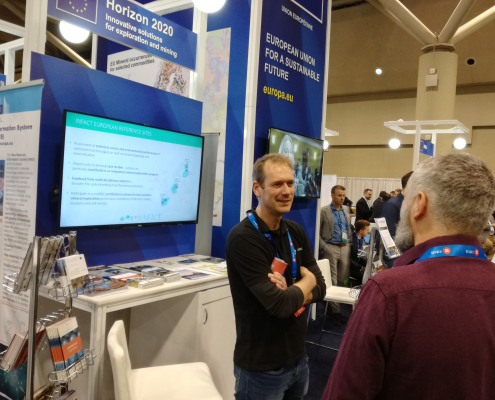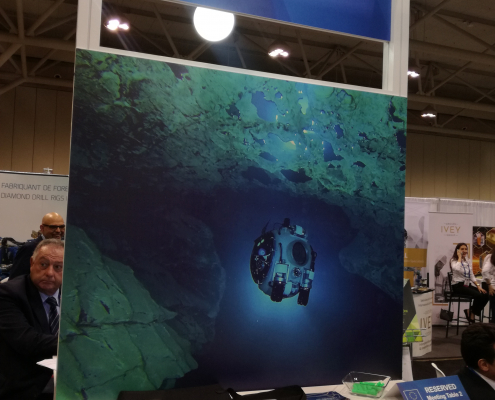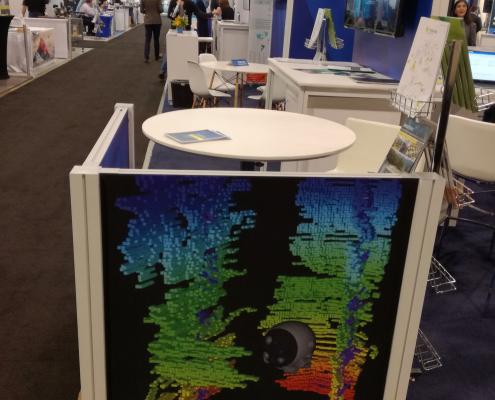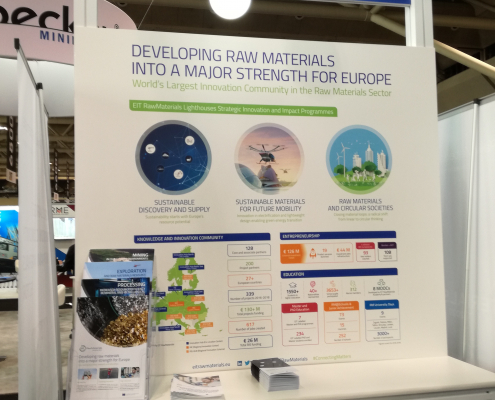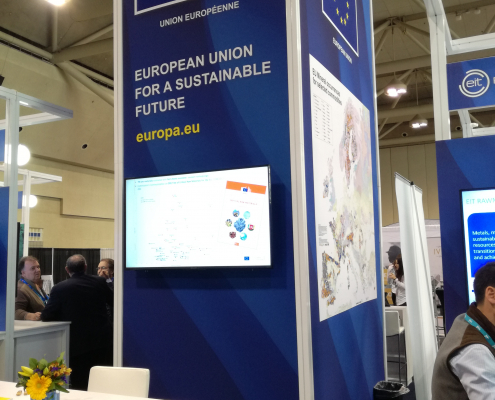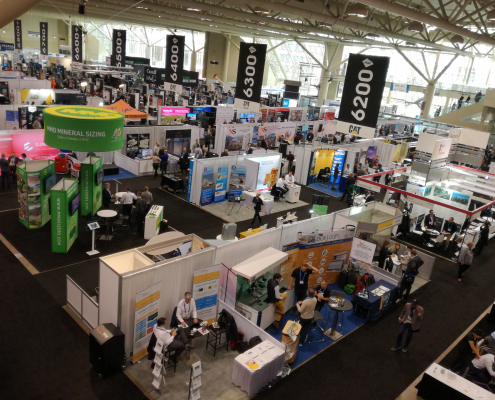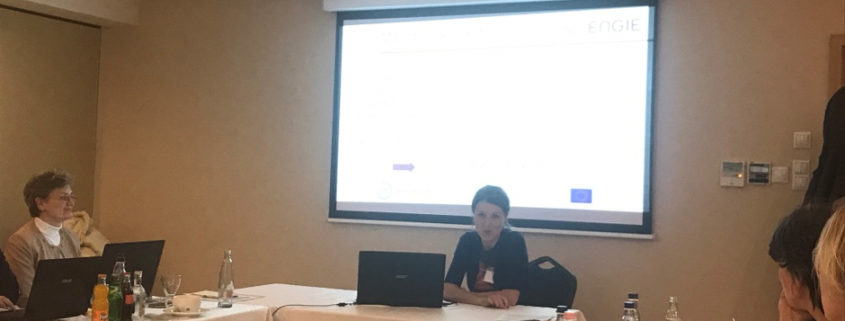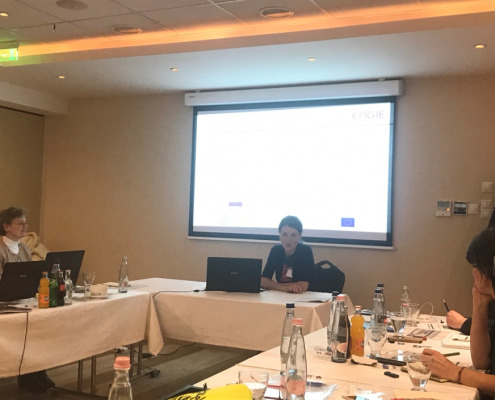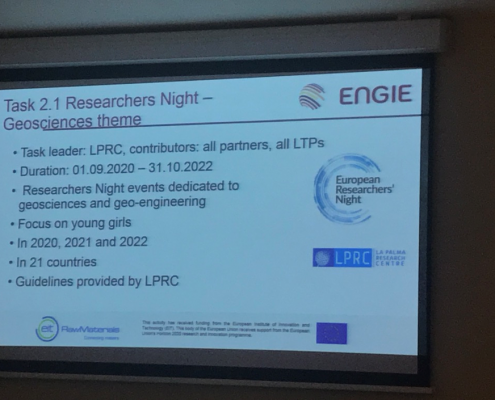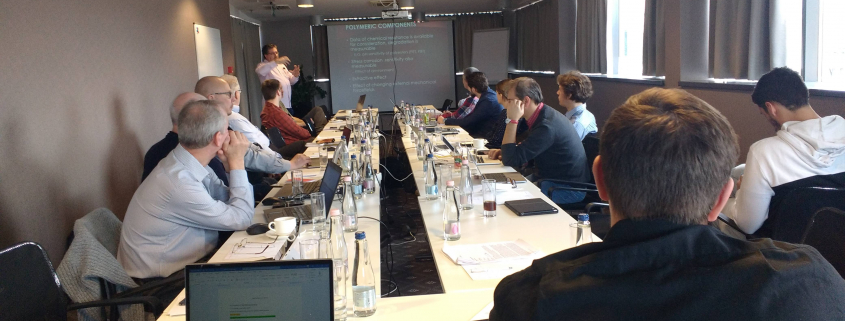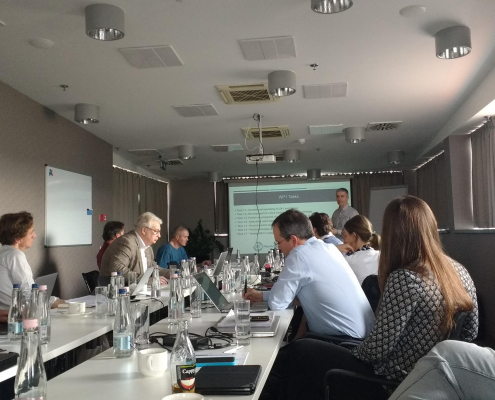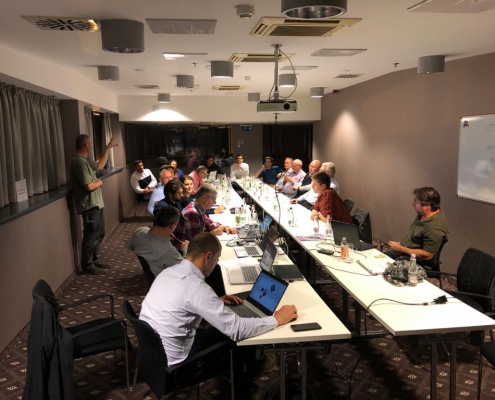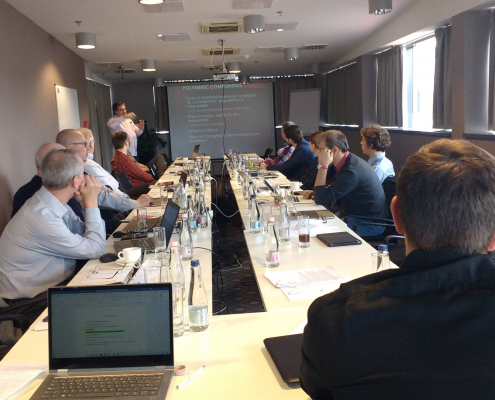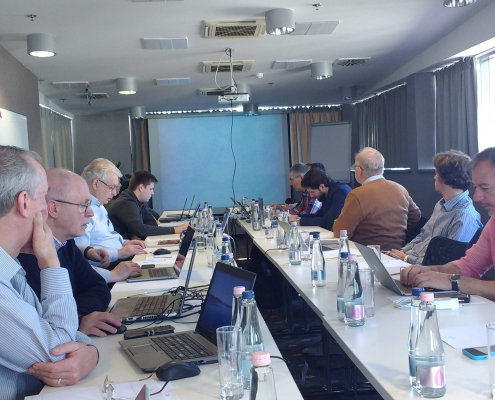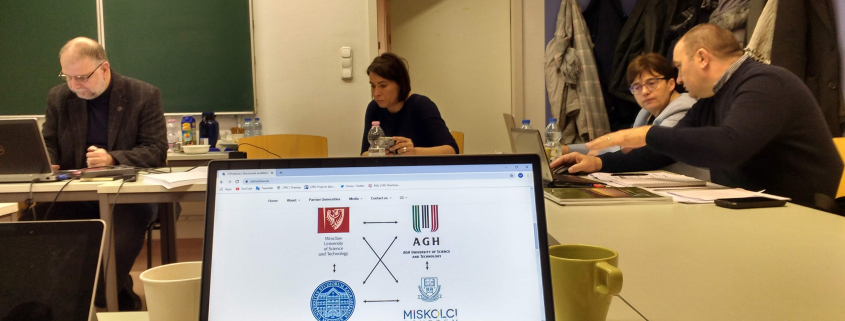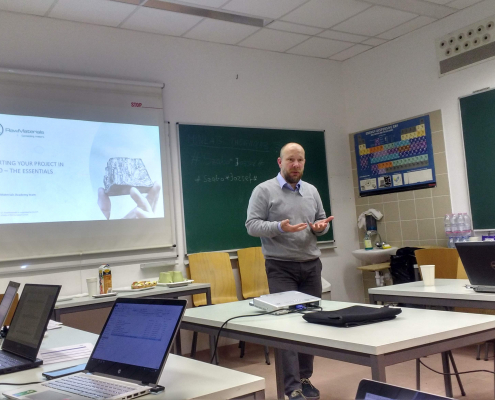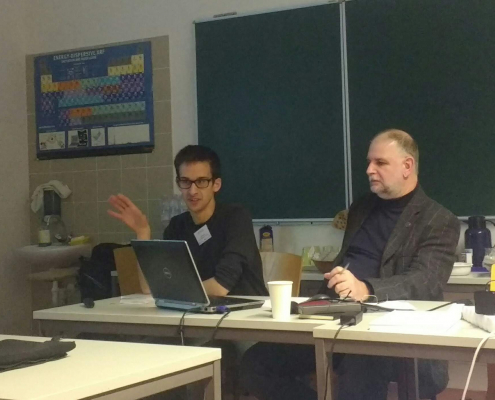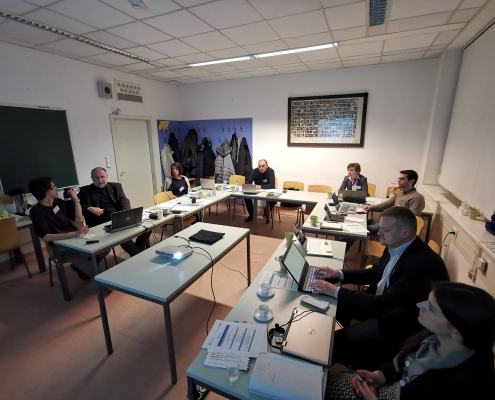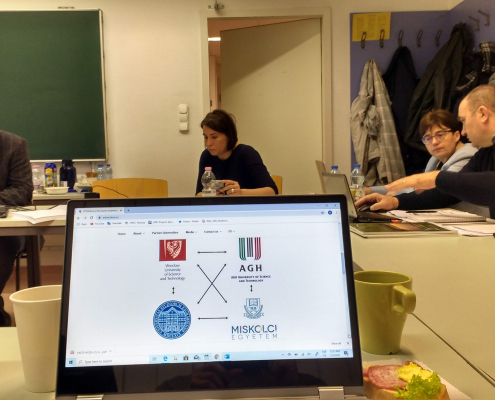The LPRC team members keep working on the projects despite the current situation caused by the Covid-19 pandemic in Europe. LPRC collaborates at this moment in 9 European-funded projects and keeps providing its expertise in communication, technology foresight and policy to the implementation and development of new technologies and approaches to raw materials related topics.
The state of LPRC’s work and current efforts in the projects is as follows:
INTERMIN – LPRC finished its work on WP2 – Raw Materials sector skills, gaps and needs, and is now contributing to the project’s dissemination.
MacaroNight – As coordinator LPRC is compiling and finalising the remaining deliverables.
PRO-ACT – For this space-related project the team has recently contributed with information on preparing lunar analogues for the project’s demonstration tasks. This information is inserted in an important deliverable of the project’s preparation phase.
ROBOMINERS – For the ROBOMINERS project, where LPRC is in charge of WP8 – Active roadmapping and clustering, the team is contacting other European projects of relevance (acting in the raw materials and robotics fields) to create synergies with the help of clustering activities. At the same time, LPRC is planning and working towards the future-oriented tasks which include Focus groups, Horizon Scanning and Roadmapping.
AGEO – LPRC deals with communication and dissemination towards the project’s stakeholders. Therefore, the team maintains active communication through the website and social media channels during these times. LPRC is also contributing to the clustering task of AGEO by contacting possible projects and initiatives that work around geohazards.
CROWDTHERMAL – Regarding CROWDTHERMAL, LPRC started to plan the WP4 – Integrated development schemes – activities well ahead of time, so that WP4 can kickstart with all tasks well defined later in the autumn. At the same time, LPRC is leading the social media interaction with stakeholders which entails the production of posts and dissemination material such as factsheets.
ENGIE – LPRC has now started to work on how to integrate ENGIE activities in the European Researchers Night. A guideline document will be produced and shared with the partners.
MOBI-US – Within MOBI-US the LPRC team is responsible for the communication and dissemination activities and involved in policy analysis and knowledge transfer. For the first, LPRC is maintaining and creating content for the website and social media at regular times. For the policy analysis, LPRC is writing a guideline based on the latest results on European qualification framework, skill and competence catalogue for the raw materials sector.
UNEXUP – For the UNEXMIN Upscaling project, the team’s tasks work around outreach to the public and stakeholders. For this LPRC keeps the project website and social media channels running with updated content. To strengthen communication a number of tools is also being produced and these include brochures, press releases and short videos.
The LPRC team will continue to support all the projects’ activities and foresees no delays in its work due to the current situation.
Follow LPRC’s social media channels for updates on the company and its projects!
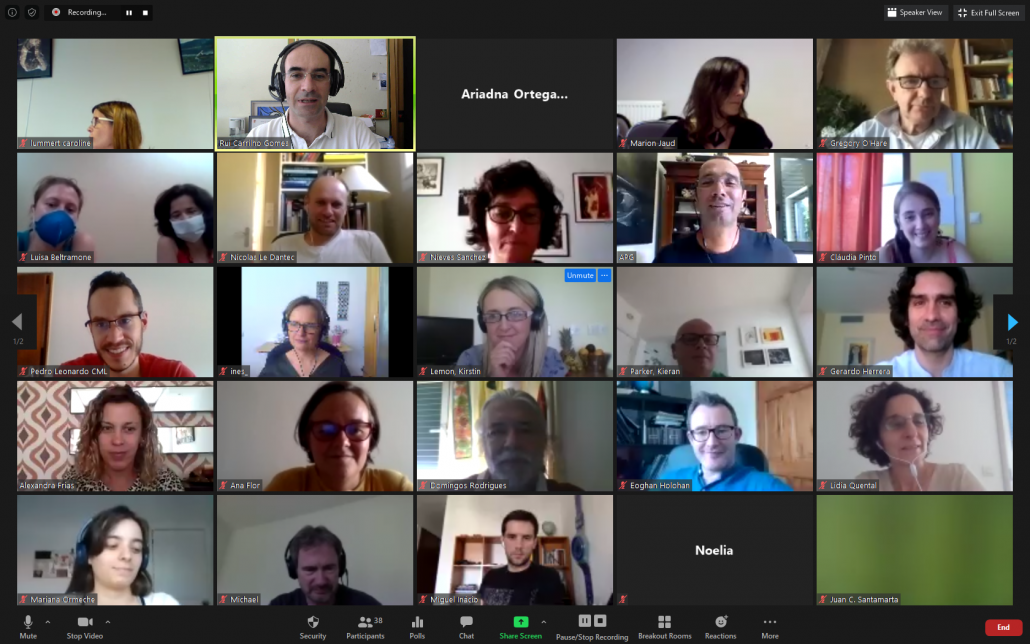
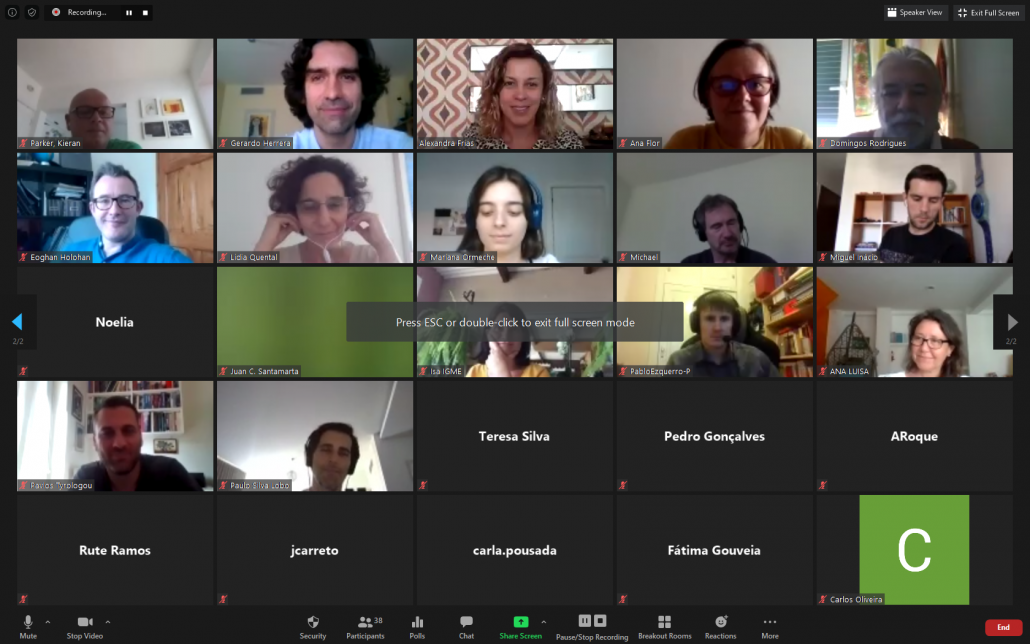

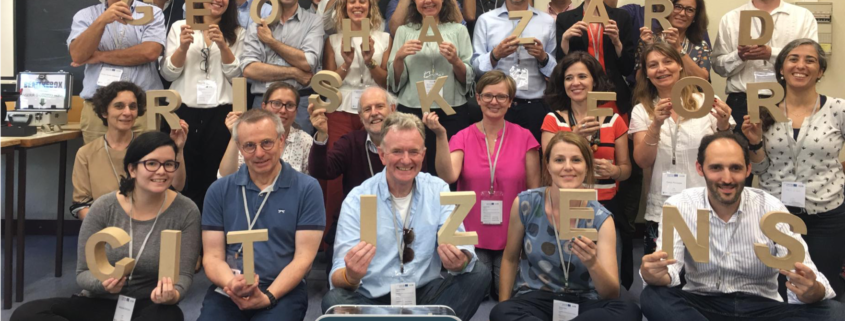 AGEO
AGEO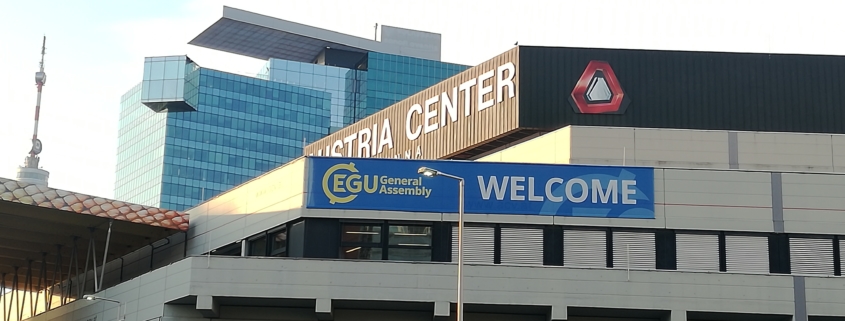
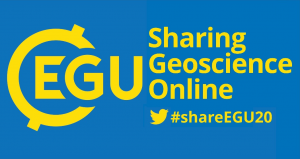
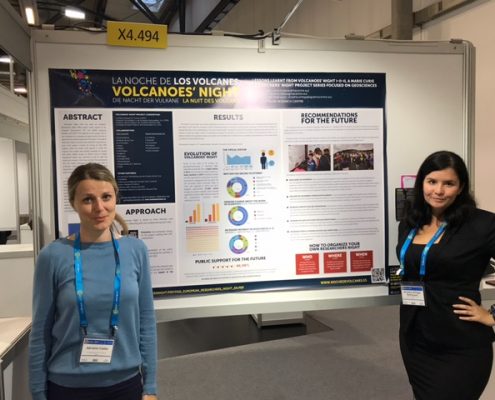
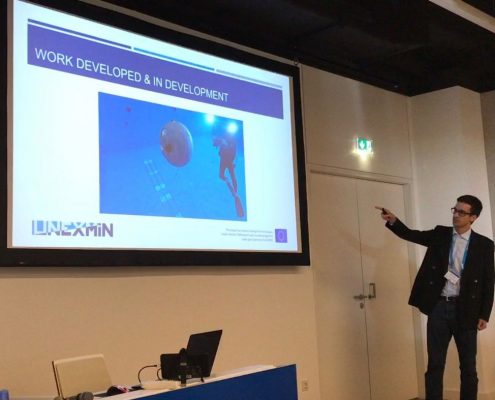
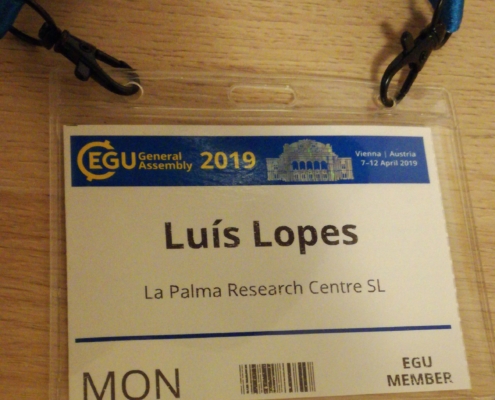
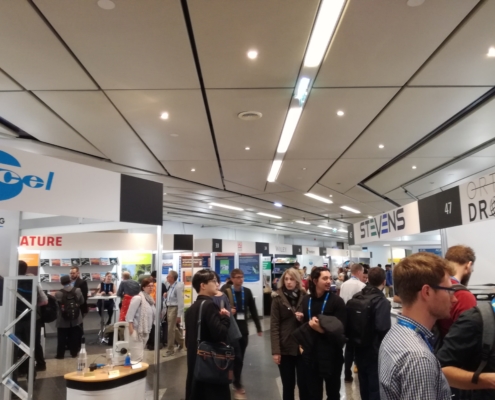


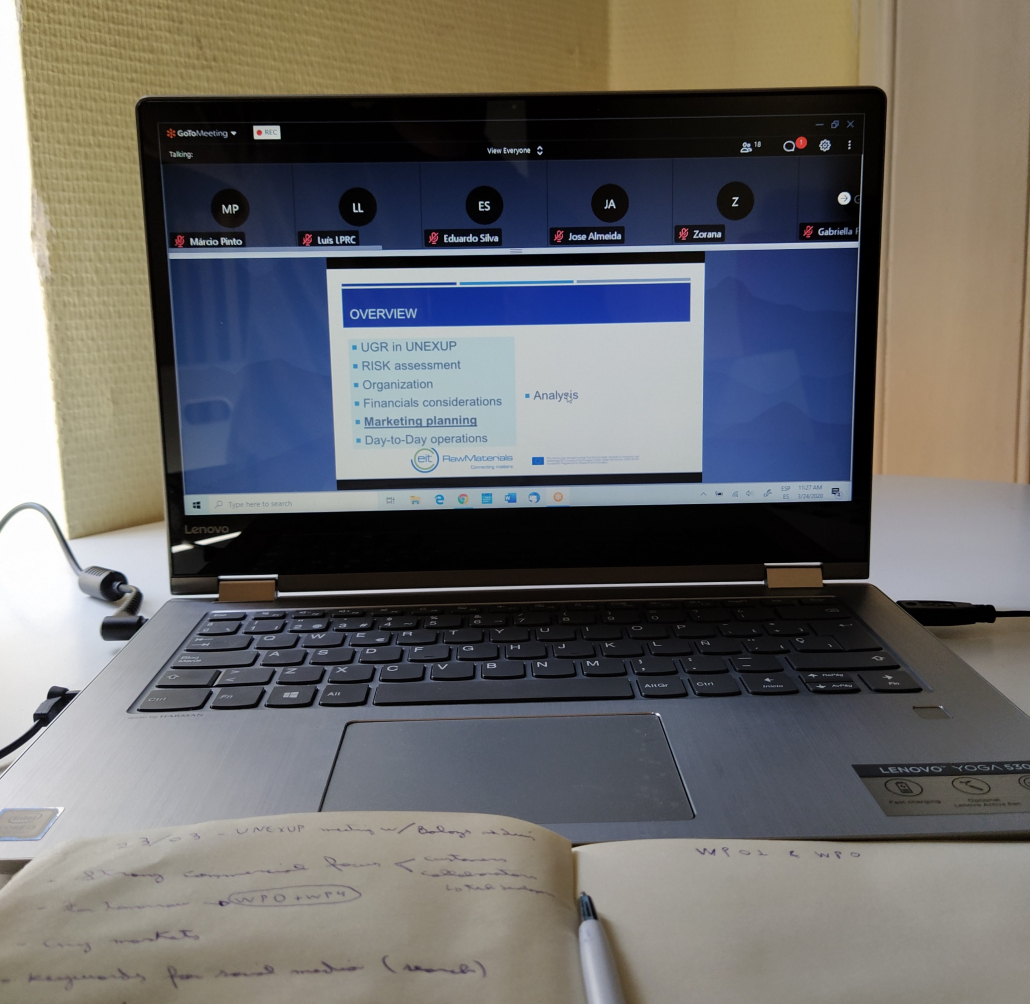
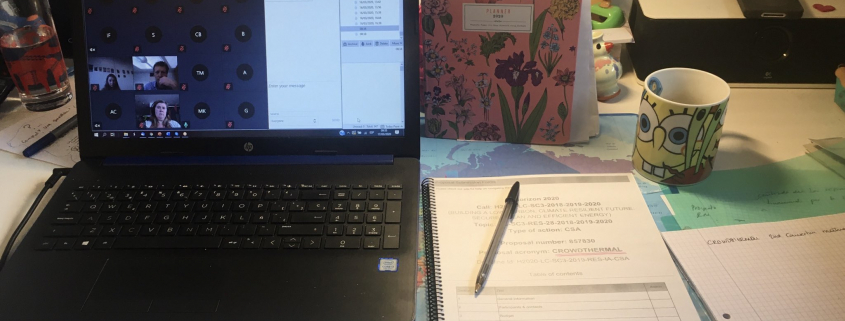
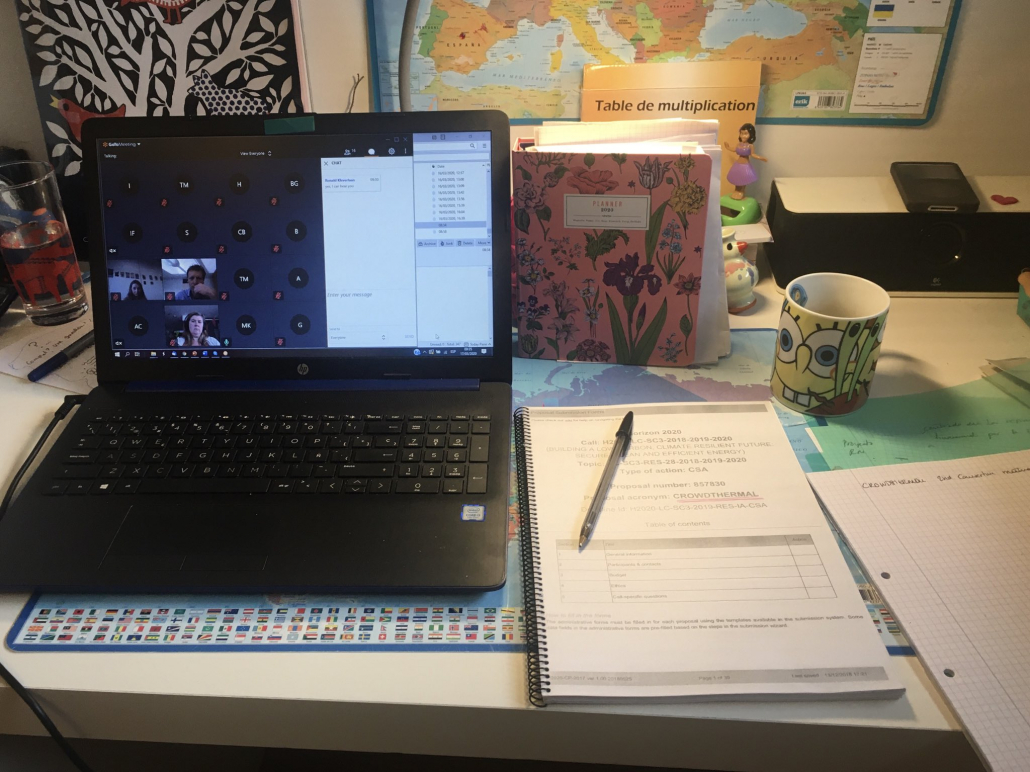
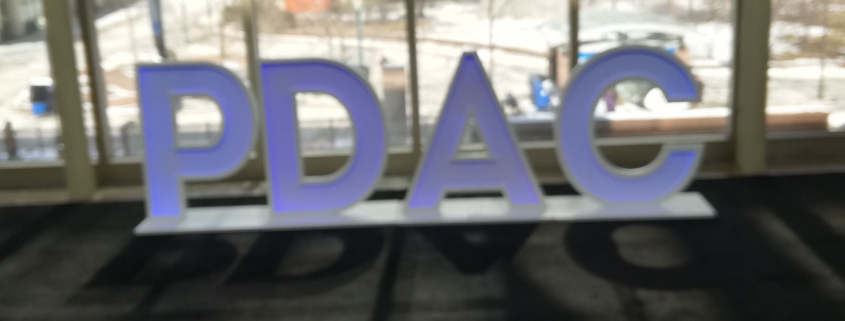 La Palma Research Centre
La Palma Research Centre